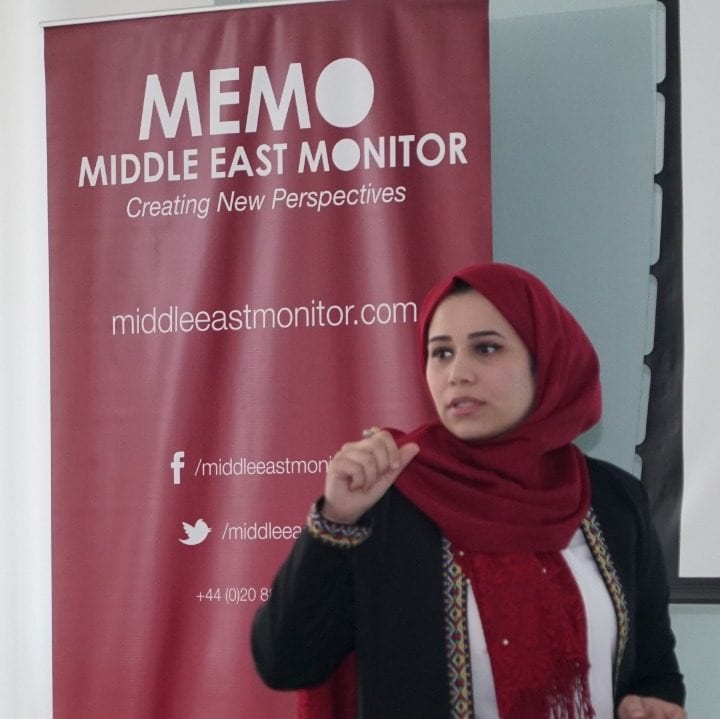Reading can take you into different worlds, and the adventures they contain can take on another dimension when books are read in different languages. New experiences beckon when reading something in a language very different to the original.
This is what Brazilian Publishing House Tabla aims to provide. It focuses on publishing books about Middle East cultures, particularly from Palestine, and their echoes around the world.
“Our desire is to present and represent these cultures in an authentic way”, explained the director of Tabla, Laura di Pietro. “We aim to highlight ways and means for contacts, travel and building cultural bridges.”
She told me that there is a lot of interest in Palestinian literature in Brazil, which is why she feels that it is important to translate the work into Portuguese. Ghassan Kanafani’s books, for example, have an eager audience in the South American country.
Even though Portuguese is full of Arabic words, the language is a challenge to the Arab community in Brazil. Having learnt Portuguese, many lose their ability to use their mother tongue. Hence, the translation of literary works is of huge importance to Arab Brazilians as it keeps them in touch with “back home”.
Furthermore, it helps to shape their understanding of the world around them. Reading contemporary works provides fascinating insights into other cultures and countries in a fast-paced world rife with misunderstanding and confusion.
“Well-established international translations enhance the ability to build bridges between East and West and extend cultural and human communication between different cultures,” said di Pietro.
One of Tabla’s latest publications is the Palestinian book Gaza, Land of Poetry, an anthology of 42 poems by seventeen young poets born in Gaza. Their poetry reveals a face of the besieged territory which we are unaccustomed to seeing after 15 years of the harsh, painful reality of life under siege.
A number of professors of poetry and the Arabic language in Brazil helped to translate the book, such as Michel Sleiman, Professor of Arabic Language and Literature at the University of Sau Paulo, and Safa Jubran, a university professor and translator. They led on the translation of the book alongside students and alumni of the Undergraduate and Postgraduate courses in Arabic Language and Literature at USP.
“This is more than just a book,” said di Pietro. “It is a collective project to highlight the rich cultural and literary heritage of Gaza. It is a very rare book, full of metaphors which testify to life despite the wars.” Its writers, she added, were born in the reality of exile within their own land between a sea with no way out and two hostile borders. “Nevertheless, the poets cling to life with hope.” Royalties from sales of the book, she said, will go to Gaza through the Tamer Institute for Community Education.

The Brazilian publishing house Tabla won the Turjuman Award at the Sharjah International Book Fair in 2021
Kanafani began his book The Little Jellyfish with these words: “To keep my promise to you, I decided to write you a story about a little jellyfish, which will grow as you grow.” A Portuguese translation was published by Tabla and launched on 8 July to coincide with the 50th anniversary of his assassination.
According to di Pietro, the book was produced as a tribute to Kanafani who remains a powerful voice of the Palestinian people and their struggle. “His tremendous writing is straightforward, simple and short. Reading Kanafani’s work is inspirational; it becomes part of you. He was a great writer, and a voice that will never be silenced.” Another four translated novels are in the pipeline.

Director of Brazilian publishing house Tabla, Laura di Pietro
The translation of literature is a very creative art that requires a particular skillset to strike a balance between the sense of the original work and creating something unique and distinctive that will evoke the same feelings and responses as the original. Tabla has harnessed all of the skills and tools at its disposal to preserve Palestinian literature and present it to the largest possible audience in Brazil, in a language that the people understand.
“This is necessary in order to refute the negative and distorted narratives about the people of Palestine,” added Laura di Pietro, “while also enriching the Brazilian literary canon in the process.”
READ: A Palestinian woman from Gaza is now a mayor in Sweden















